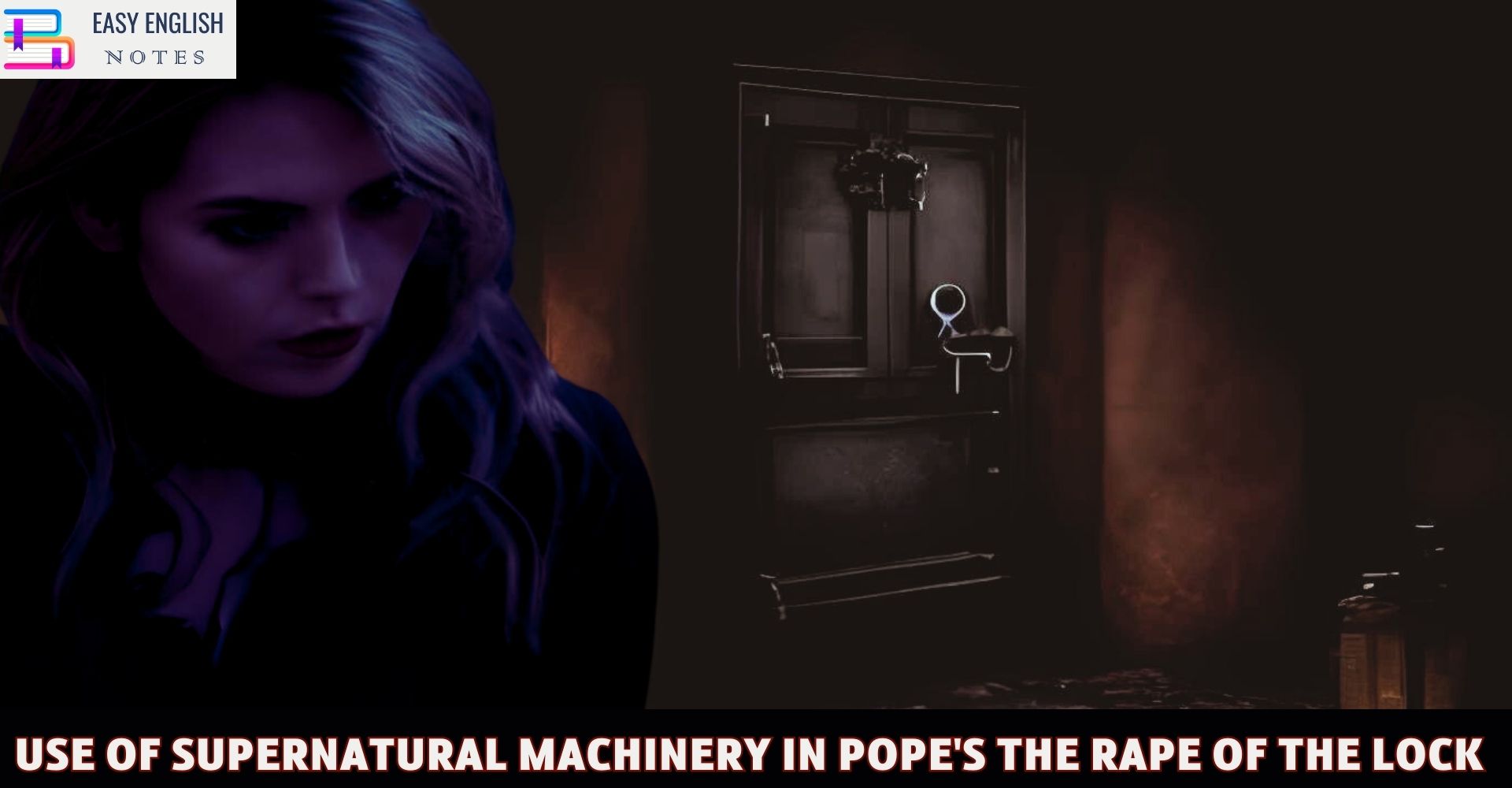The use of machinery is a common feature of the epic. Various poets have presented it under different names. Some have mentioned gods, while others have mentioned angels. Homer and Virgil have their gods and goddesses; Milton’s Paradise Lost is full of superhuman agents and if there are some human characters, they occupy but a small space. Pope has introduced aerial spirits in The Rape of the Lock. His supernatural machinery is consistent with its mock-heroic style.
Sources of Pope’s Machinery:
Pope borrowed his supernatural machinery from two sources. He took the name of Ariel from Shakespeare’s Tempest. The idea of the sylphs and gnomes was definitely borrowed from a French book Le Comte Gabalis which dealt with the Rosicrucian mythology. According to the Rosicrucian’s, the four kinds of spirits, called Sylphs, Gnomes, Nymphs and Salamanders represent the four elements, fire, water, earth and air respectively.
Machinery was added to the second edition of the poem:
When the first edition of The Rape of the Lock was brought out in 1712, it consisted of two cantos and had no supernatural machinery. It soon became popular. Encouraged by the success of the first edition, Pope revised it and added the supernatural machinery to it. Thus the second edition published in 1714 in Pope’s name had something new for the readers. George Holden observes, “It is Pope’s use of this machinery moreover, which, more than any other single feature, made the poem the single success that it is”.
Also Read :
- Compare Hamlet with Macbeth, Othello and other Tragedies
- “The Pardoner’s Tale” is the finest tale of Chaucer
- Prologue to Canterbury Tales – (Short Ques & Ans)
- Confessional Poetry – Definition & meaning
- Line By Line Explanation Of The Poem The Eve of St. Agnes
What is Machinery? :
Explaining the word ‘machinery’ to Mrs. Arabella Fermor, Pope writes, “The machinery, Madam, is a term invented by the critics to signify that part which the Deities, Angels, or Demons are made to act in a poem”. His object in introducing the ‘machinery of sylphs and gnomes was to heighten the mock-heroic effect of the poem and at the same time tends it more impersonal in tone, and so less distasteful to the Fermor family. Pope was right in his judgement. for the introduction of machinery converted a mere personal squib into a masterly and playful satire upon the follies and frivolities of the fashionable young ladies and beaux of his times. And, at the same time by telling Arabella that the character of Belinda resembles you in nothing but beauty’: he made her realise that to a certain extent she was to be blamed.
Pope’s originality in the use of Machinery:
Pope’s machinery. although borrowed from the Rosicrucian doctrine of spirits, is free from the gross and mysterious origin of the spirits. He mixed it with the Platonic conception that human soul exists in another state after the loss of the human bodies. He made the spirits lineal descendant of the souls of women continuing their old passions in their new aerial forms:
Think not when woman’s transient breath is fled,
That all her vanities at once are dead:
Succeeding vanities she still regards,
And tho’ she plays no more. o’erlooks the cards.
Her joy in gilded chariots, when alive.
And love of Ombre, after death survive.
The Artistic Significance of Pope’s Use of the Machinery:
From the above account of Pope’s use of the supernatural machinery in The Rape of the Lock we may rightly conclude that it has served the purpose of the poet well and at the same time it has made the poem more charming. Some of its passages are gems of poetry. The one describing the sylphs in Canto II is one of the most exquisite in the whole range of English poetry. But Dennis finds some faults in Pope’s use of the supernatural machinery. We may not bother about them as it has hit only on some minor defects. First, it is against the Christian religion; secondly, there is no just subordination or proportion between the functions; and lastly, the machines are not taken from one system. But whatever faults Dennis finds, it cannot be denied that the introduction of sylphs and gnomes has given the poem a charm of its own without which it would have remained dull and common place. The Machinery, which provided Pope an opportunity to give vent to his imagination, thus made the poem a grand success and popular even in today’s time.
PLEASE HELP ME TO REACH 1000 SUBSCRIBER ON MY COOKING YT CHANNEL (CLICK HERE)











